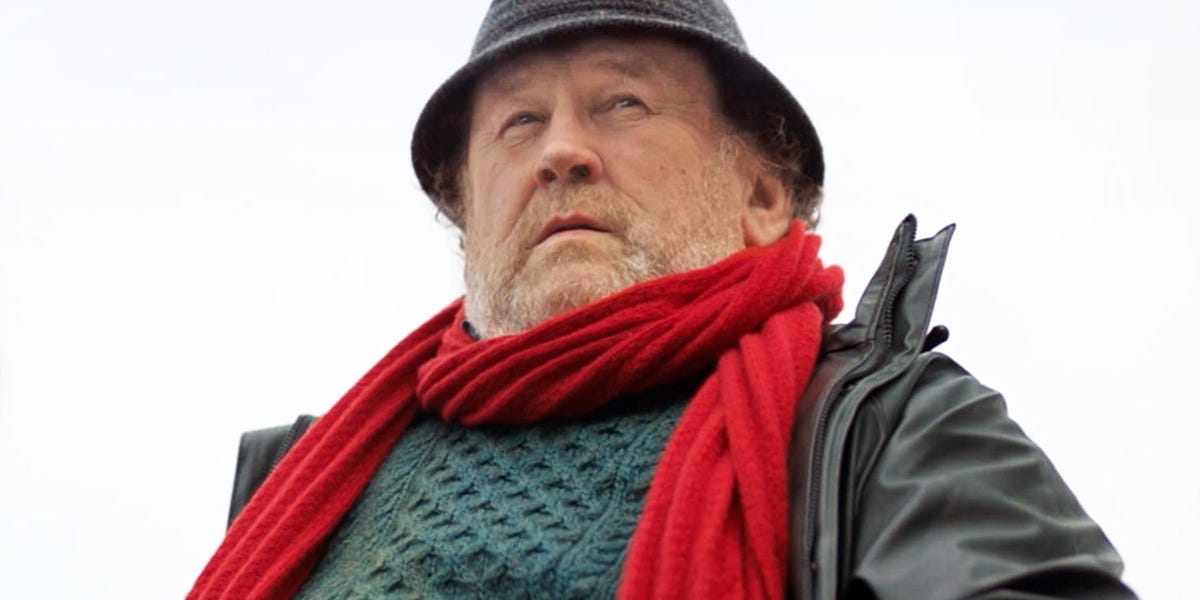For “The Santa Stories” films, Coca-Cola tapped award-winning “Creed II” director and screenwriter, Steven Caple Jr., Universal’s “Jurassic World” franchise actor and director Bryce Dallas Howard, and Oscar-winner Octavia Spencer.
The films were developed in collaboration with WPP’s creative agency VML with Ron Howard and Brian Grazer’s Imagine Entertainment and Prettybird, production companies that are known for doing work for brands. They make up part of Coca-Cola’s wider Christmas marketing campaign “The World Needs More Santas” and are set to be released on Amazon’s Prime Video and Freevee December 8 along with Coca-Cola’s social channels. (The films are handled by Amazon’s advertising division; Amazon MGM Studios, the company’s film and television production and distribution studio, wasn’t involved.)
The films are meant to reimagine Santa in different ways. In “The Note,” Irish actor Colm Meaney plays a grump whose Christmas spirit is restored by a message in a bottle. “Ho Ho Heist,” directed by Steven Caple Jr. and starring Spencer and SAG Award-winning actor and producer Scoot McNairy, is a heist-thriller where Santa lands in jail.
The branding is hard to miss in the films, which run 10 to 15 minutes. In “The Note,” the message comes in a Coke bottle; in “Ho Ho Heist,” there are close-ups of an errant Coke bottle that helps foul a break-in, for example. Both films close with the words “Brought to you by Coca-Cola.”
Islam Eldesoukky, global head of creative strategy at Coca-Cola, said these brand films, which represent Coca-Cola’s second big move into branded storytelling, build on last year’s in terms of caliber of director and talent. He broke down the creative process, what’s next for Coca-Cola’s filmed entertainment, and the future of brand storytelling in an interview with Business Insider.
Coca-Cola wanted the films to center on Santa Claus, who’s been a recurring character in its ads.
“We have permission to talk about Santa,” Eldesoukky said. Imagine came up with the ideas, with Coca-Cola giving input, he said, “in a humble and respectful way; we sell beverages, we’re not entertainment experts.” “Ho Ho Heist” started as a comedy, but Coca-Cola felt it should go in a more dramatic direction, for example. “Coke is lighthearted, but we don’t want people to laugh out loud,” he said.
WPP’s agency made sure the films fit Coca-Cola’s overall campaign and wove in product appearances. Eldesoukky said Coca-Cola doesn’t expect the films to have a direct impact on sales, but that Coca-Cola will do studies with Amazon to see how viewers feel about the brand after seeing the films, which it hopes will lead to more frequent purchases. “At the end of the day, we don’t want the brand to have no role in the films,” Eldesoukky said.
What’s next for Coca-Cola’s brand films
Looking ahead, Coca-Cola doesn’t want to stop at shorts, especially when other mega brands like Nike and Barbie have themselves become the subject of, or have backed, Hollywood films that drew big audiences. Procter & Gamble, another Imagine Entertainment client, for example, has some 15 features and docs in the works.
Eldesoukky believes Coca-Cola has a lot of themes it could associate itself with, with its brands’ longstanding links to not just the holidays but food and culture.
“The corridors for the brand are so many. I think we just want to make sure we do it in the right way,” he said. He can also see a film about the story of Coca-Cola itself, whether it’s made by the company itself or, like in the case of “Air,” about the history of Air Jordans, which was made independently of Nike. “I’m sure we’ll eventually have a story about the brand.”
There are limits to brands’ embrace of Hollywood-style entertainment. Streamers still take the view that brand-backed films are impure, though that perception is easing. Brands also face internal resistance that such projects will pay off for their business goals.
Coca-Cola’s moves in the space are likely to be incremental. Eldesoukky said that depending on how this year’s Christmas films perform, he can see the company making one or two additional films in 2024. He expressed more certitude that the broader embrace of brand films by marketers and streamers alike would continue, though. “Brands are getting better at it,” he said. “‘Barbie’ was the talk of the year. They’re all going to intersect.”
This article was originally published on December 7.
Read the full article here





